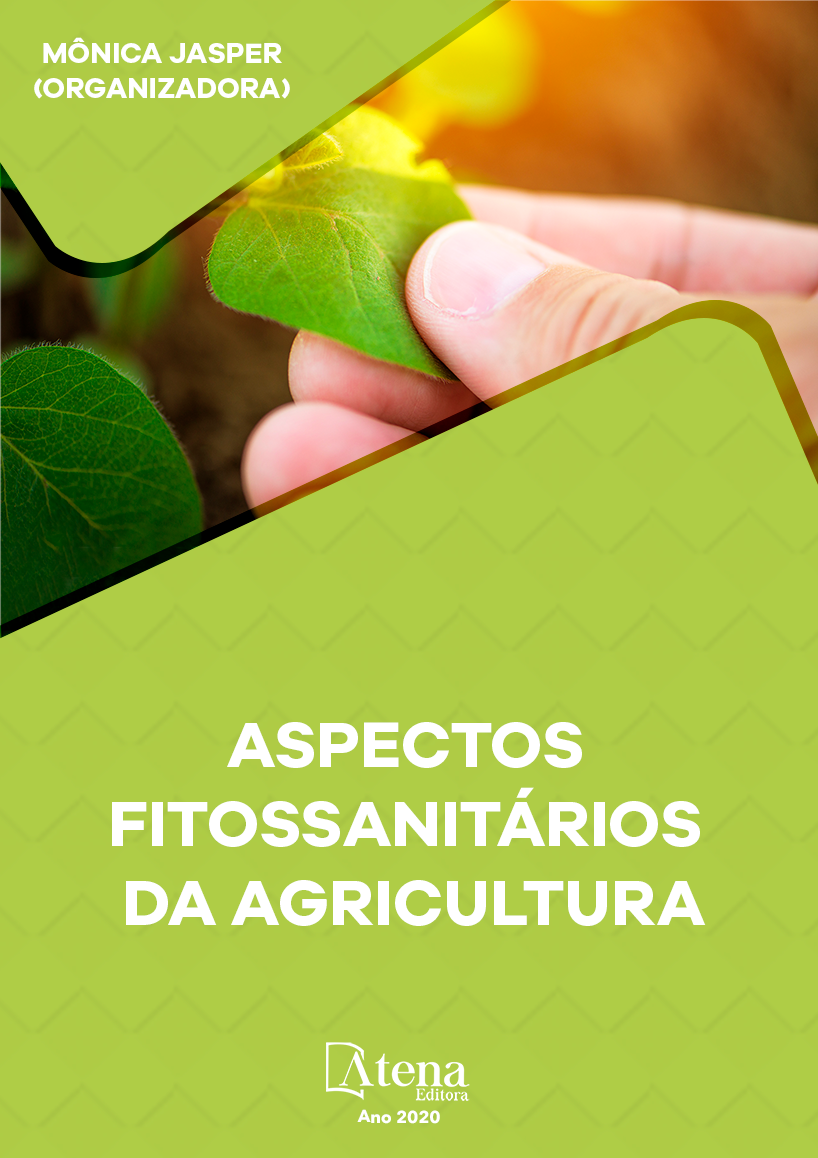
FUNGICIDAS BOTÂNICOS NO CONTROLE DA MANCHA-DE-BIPOLARIS NO MILHO
Instituições de pesquisa enfatizaram agentes alternativos de controle de doenças porque representam uma ótima opção com efeitos benéficos na saúde humana e animal e no equilíbrio do ecossistema. Apesar dos estudos já realizados sobre fungicidas botânicos, seu uso efetivo requer conhecimento sobre a aplicabilidade de produtos naturais a diferentes sistemas de produção. O principal objetivo deste estudo foi avaliar a eficácia dos óleos essenciais de Ocimum pupuraceus L., Cymbopogon nardus (L.) Rendle, Cymbopogon citratus (DC.) Stapf e Lippia sidoides Cham. na inibição do crescimento micelial e germinação de conídios de B. maydis. Os demais objetivos deste estudo foram realizar análise cromatografia gasosa, fitotoxicidade e controle da mancha-de-bipolaris, por meio do óleo essencial de L. sidoides, aplicado na forma preventiva e curativa. Entre os tratamentos estudados, o óleo essencial de L. sidoides é eficaz na inibição do crescimento micelial e da germinação de conídios nas concentrações de 5 e 1%, respectivamente. O principal constituinte do óleo é o timol (92,68%). A faixa de concentração de 0,75 a 3% do óleo essencial de L. sidoides é fitotóxica para plantas de milho. Valores inferiores da área abaixo da curva de progresso da mancha-de-bipolaris são observados nas concentrações de 0,1 a 0,5%, quando o óleo essencial foi aplicado como agente preventivo antes da colonização dos tecidos vegetais pelo patógeno. A aplicação do óleo como curativo nas plantas com a doença também mostra eficácia na concentração de 0,1%, reduzindo a severidade em mais de 54%. Esses resultados demonstram os potenciais efeitos do óleo essencial de L. sidoides no crescimento micelial de B. Maydis e no controle preventivo e curativo sob a mancha-de-bipolaris no milho.
FUNGICIDAS BOTÂNICOS NO CONTROLE DA MANCHA-DE-BIPOLARIS NO MILHO
-
DOI: 10.22533/at.ed.4092013039
-
Palavras-chave: Plantas medicinais, controle alternativo, Zea mays, Bipolaris maydis, Lippia sidoides
-
Keywords: 17
-
Abstract:
Research institutions have emphasized alternative disease control agents because they represent a great option with beneficial effects on human and animal health and ecosystem balance. Despite the studies already done on botanical fungicides, their effective use requires knowledge about the applicability of natural products to different production systems. The main objective of this study is to evaluate the efficacy of essential oils of Ocimum pupuraceus L., Cymbopogon nardus (L.) Rendle, Cymbopogon citratus (DC.) Stapf, and Lippia sidoides Cham. on the inhibition of mycelial growth and germination of conidia of B. maydis. The other objectives of this study were to perform gas chromatographic and phytotoxicity analyses, and test the control of bipolaris leaf spot using essential oils of L. sidoides applied as a preventive and curative agent. Among the treatments studied, the essential oil of L. sidoides is effective in inhibiting mycelial growth and conidial germination at the concentrations of 5 and 1%, respectively. The main constituent of the oil is thymol (92.68%). The concentration range 0.75-3% of L. sidoides essential oil is phytotoxic to maize plants. Lower values of the area under the progress curve of bipolaris leaf spot are observed at concentrations 0.1-0.5%, when the essential oil was applied as a preventive agent prior to the colonization of plant tissues by the pathogen. The application of the oil as a curative to plants with the disease also shows efficacy at the concentration 0.1%, reducing the severity by more than 54%. These results demonstrate the potential effects of L. sidoides essential oil on preventive and curative control of bipolaris leaf spot in maize and mycelial growth.
-
Número de páginas: 17
- GIL RODRIGUES DOS SANTOS
- DAVID INGSSON OLIVEIRA ANDRADE DE FARIAS
- TAYNÁ ALVES PEREIRA
- FABRÍCIO SOUZA CAMPOS
- PAULO HENRIQUE TSCHOEKE
- DAMIANA BEATRIZ DA SILVA
- EDUARDO RIBEIRO DOS SANTOS
- PEDRO RAYMUNDO ARGUELLES OSORIO
- TALITA PEREIRA DE SOUZA FERREIRA
- JOÃO VINÍCIUS LOPES DOS REIS
- MICAELE RODRIGUES DE SOUZA
- Dalmarcia de Souza Carlos Mourão


